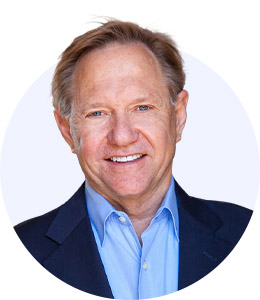Part Two of a Two-Part Column
Are you harder on yourself than perhaps you should be? Many leaders are. We want to do our best work, and it’s easy to feel like we let others down when we are not perfect. I know this is true because I sometimes feel this way. Actually, I have gotten better than I used to be, but I still have my moments.
If you read my column last week, I shared the story of my wake-up call. You can click here to read about it, but in summary, when I was 31 years old, my therapist Amy Storm gave me some valuable feedback. She pointed out that anytime she said something nice about me, I shut her out. I did this with my body language and my words. And the point she made that really changed my life is that I felt bad about myself because I tend to filter out the positives.
Now, I’ve done many presentations over the years, and probably one of the stories I share the most is the story I just told about my therapy. It’s amazing when I talk to a group and I say, “Do you think we filter out the positives?” All the heads start bobbing up and down like, “Yes, yes, yes.” That’s the self-awareness part. Then I move into, “Well then, how do we change that?” Sometimes I will say, “Have you ever noticed when you try to compliment someone, they fight you on it? They push back.” You say, “You did a nice job on this.” And they say, “I could do better.” Or you tell someone how well they handled a situation, and they say something like, “Well, it’s nothing anyone else wouldn’t do.” We tend to downplay what we do.
There are always things we can do better. But often the best way to start is to gain more confidence in ourselves. Here are a few tips on how to stop filtering out the positives:
- Be self-aware. Try to notice when you’re looking at what’s wrong, instead of what’s right.
- Each day, write down something you did that was good. At the end of the year, you’ll have 365 good things that you have done. You’ll start saying, “You know what? Today I did move some things forward. Today I did make progress.” This helps us start bringing home what we did well, instead of just what we didn’t get to. (Ever notice when we have an ongoing to-do list, when we leave at the end of the day, instead of feeling good about what we checked off, we take home what we didn’t check off? That’s some of the mental anguish that we’ve got to stop.)
- Start a gratitude text group. Find a small group of people you really trust and feel safe with and ask if every morning you could share some things that you’re grateful for. It is amazing how much you’ll come to look forward to these texts.
- Be kind to yourself. I like to say that if we were to draw a cartoon of most people in leadership, they would be in a boxing ring. And even though there would be nobody else in the ring, they would be losing the fight. We tend to beat ourselves up by focusing on what we didn’t do right, instead of on what we did do right. We have to stop that.
- Some people tend to point out what’s wrong, but don’t take it too personally. Sure, it’s good to get critical feedback, but there are some individuals who think their full-time occupation is pointing out what’s wrong in you, others, and the world. I’m not saying to discount everything. Just try not to be overly sensitive because there are some people who are just unhappy. You’ll never change them.
- Hang out with the positive people, those who want solutions. Remember what Jim Rohn said: “You are the average of the five people you spend the most time with.” Create a positive work environment and a positive personal environment for yourself.
- Finally, be okay with saying thank you. When somebody gives you a compliment, accept it. They mean it; to discount it almost belittles them. It tells them you don’t feel they have an objective measurement. Just say, “Thank you very much,” and move on.
So, that’s my message for today. Be kind to yourself, feel good about your accomplishments, and surround yourself with people who help you get better and better. Don’t filter out the positives. In fact, let me end this column by sort of testing you out: “Thank you for reading this column and for the positive support you give me. I am grateful for you.”







